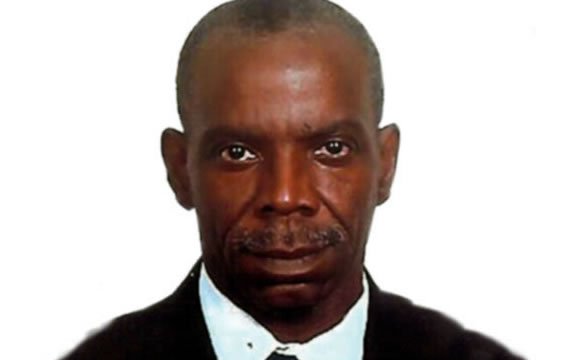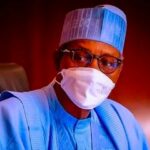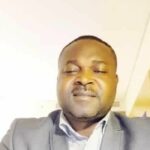
Some argue that the Risorgimento — just a big word for the revival — of the political energy of Nigerian youths is coming on the heels of two separate movements whose dreams were cut short by Nigeria’s ancien regime politicians.
The first is the spontaneous #EndSARS, the highly profound youth protest against police brutality. In September 2020, its chugging train spluttered to a halt in blood and broken limbs at the Lekki Tollgate in Lagos.
The other movement is the youth energy gathered by the presidential aspiration of Vice President Yemi Osinbajo, whose flame was extinguished at the 2022 presidential primaries of the ruling All Progressives Congress political party that Bola Tinubu won.
Unfortunately, the youths are splintered into two almost irreconcilably distinct groups: The educated, urbane and articulate versus the roughneck, gruff and nearly always violent vanguard. The latter group is malleable by the malevolent machinations of the ancien regime politicians.
One wing of the urbane youths resides abroad—North America, Western Europe, Eastern Europe and the Pacific. Unfortunately, the Nigerian Electoral Act does not empower them to vote though they send huge diaspora remittances back home.
Sometimes some root for one presidential candidate. And the other wing makes a lot of hay associating with another candidate. They sometimes indulge in exaggerated gestures of photo-ops with the presidential candidates.
They are generally a brash lot and never fail to express their love or disdain for Nigerian politicians. They could go to the most extreme depending on their moods, whim, intention or interest.
Two interesting cases in point: Former Deputy Senate President Ike Ekweremadu, now in a United Kingdom gulag for an allegation of human organ harvest, was once heckled in Nuremberg, Germany a few years ago. Also, former Osun State governor, Rauf Aregbesola, currently serving in the regime of Major General Muhammadu Buhari (retd.) as Minister of Internal Affairs, was harassed by a Nigerian youth in an American food hall.
The hope of the youths of Nigeria, like a restless wanderer, is desperately searching for a political home to rest its troubled soul. Their votes are also looking for a safe harbour on presidential election day.
Some youths may have found succour in the presidential candidacy of Peter Obi of the Labour Party, while others prefer Bola Tinubu of the APC. It doesn’t look as if they are looking in the direction of former Vice President Atiku Abubakar and his Peoples Democratic Party.
One needs to add that the near-frenzy around Obi is almost akin to the adoration by the followers of Muqtada Al-Sadr, an Iraqi cleric and politician who promised his dedicated followers that he would form a theocracy of Islamic democracy.
When he announced that he was quitting politics, his followers went on a rampage. He had to appeal to them to vacate the Green Zone, the Iraqi version of China’s Tiananmen Square in Bagdad. And they obeyed, if reluctantly.
But it’s morning yet on creation day of the political campaign and the jury is still out as to where Nigerian youths will eventually lay their weary, weeping and wailing political heads. The tea leaves are not definitive yet.
The resurgence of the energy of the youths is akin to the renaissance of 15th century Europe when the creative energies of the people of the Old World in all spheres of human endeavours, like culture, art and the sciences, were kindled.
It eventually ended in the ground-breaking Industrial Revolution of the 18th century, whose first major inventions were the textile weaving looms invented by Edmund Cartwright in 1786 and the steamship, invented by George Stephenson in 1814.
What transitioned from the renaissance to the First Industrial Revolution, and now the Fourth Industrial Revolution, sometimes called the New Economy, is still birthing new ideas and products for the human race, even at the turn of the first quarter of the 21st Century.
The analogue telephone, radio, television, and fossil fuel-powered automobiles are rapidly giving way to the digital iPhone, android phone, drone, electric car, social media platforms and biotechnology.
Even space science is going way beyond the imagination of astronomer, astrophysicist and science communicator Carl Sagan and that of H.G. Wells, one of the most significant science fiction writers.
Digital technology has provided humanity with services and devices that are almost beyond imagination. Maybe the reawakening of the energies of Nigerian youths may lead to novel political “revelations” in 2023 and beyond. You will need to cross more than your fingers as things unveil.
Right now, the major disadvantage of the Nigerian youths is that though they have the numerical advantage over the oldies, they are the minority in the most senior levels of government decision-making. They are also the most unemployed.
That must be why they are insisting on playing a major and significant role in deciding who runs Nigeria after the 2023 presidential election. It’s a most crucial election for their political and economic emancipation.
The New Nigeria of the dream of the youths will be made or marred by whoever emerges as the President of Nigeria after the February 2023 presidential election. To borrow a phrase from American President Barack Obama, “It’s a defining moment.”
The youths may be focusing on the presidential election because the leadership of the Federal Government is critical to the existence and progress of Nigeria. Nigeria’s President is exceedingly powerful; a military magistracy decked in civilian garments.
The Federal Government has near-absolute powers, privileges and patronages. If you check the Nigerian Constitution you will discover that the 68 items listed under the Federal Exclusive Legislative List pretty much make Nigeria a unitary state.
Worse is that the general provisions of the Nigerian Constitution strangulate economic and social progress. The structural booby-traps written into the Constitution are convoluted and cumbersome and are not easy to amend.
Nigeria must get it right and break out of the vicious cycle of failures, disunity, political instability, near economic ruin, even hunger and famine, and insecurity that the Constitution says is Job Number One of government.
By their actions and rhetoric, Nigerian youths seem ready to travel the road to correct whatever they think is wrong with Nigeria once and for all. It’s interesting that they are not quite big players in the separatist agitations of the Indigenous People of Biafra and the Oduduwa Nation protagonists.
They are focused on their intention to get Nigeria to run in a way that they will prosper as individuals, who will no longer have the wish or desire to migrate out of Nigeria, or to “japa,” as it is said on the streets.
They are investing, not only their energies in the project of righting whatever is wrong with the Nigerian state, they are investing their resources, making posters, jingles, online videos, audios and visuals, and staging roadshows in support of their candidates.
It’s okay that the youths want to shake the political table in 2023. But they should be regrouping to become a critical mass of political party delegates, in order to influence the outcome of the 2027 party primaries.
The youths must go beyond emotionalism and theatrics; approach the presidential candidates to extract a social contract with favourable terms. Also, they could adopt VOMO, “Vote Or Miss Out,” Michelle Obama’s advocacy for the electorate to register and vote.
Twitter: @lekansote1




